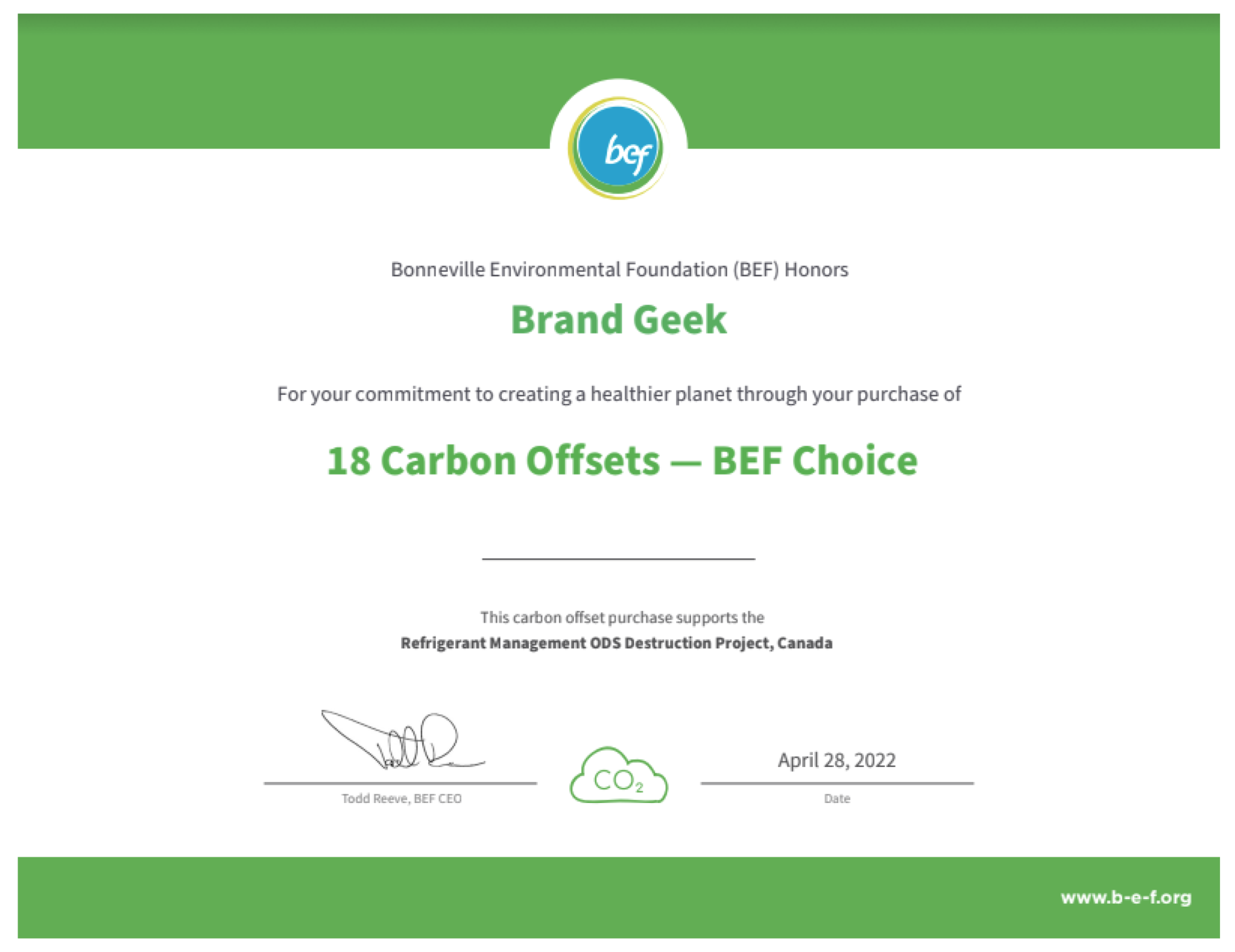Brandgeek proudly supports Mountain Area Preservation and is humbled to be…
Sustainable Foods Summit (Day One)
Today I attended the first day of Organic Monitor’s two day Sustainable Foods Summit.
Here are the highlights from the morning sessions on Day One . . .

The first speaker was Seth Goldman, TeaEO of Honest Tea. The Coca Cola company purchased a 40% interest in Honest Tea in 2008 and I presume it will purchase the remaining interest in the company two weeks from now when its option vests. Honest Tea was the first low sugar tea when it launched in 1998. Honest Tea also had the distinction of being the first certified organic bottled tea in 1999 and the first commercial fair trade beverage in 2003. By the end of Q1 2011, the entire Honest Tea line will be fair trade!
The second speaker was Theresa Maraquez, Chief Marketing Officer of CROPP Co-op, owner of Organic Valley and Organic Prairie brands, (which scored the domain name www. farmers.coop) which include 200 certified organic products. CROPP consists of over 1,600 family farms (30% of which are Mennonite and Amish farmers). Organic Valley products include: milk; soy; cheese; butter; spreads; eggs; produce; and juice. Organic Prairie products include beef, pork, turkey & chicken. Theresa stated that she starts from the premise that our food system is broken. She is adamant that sustainability requires measurement (makes sense to me!). Case in point: Organic Valley cows live 3 times longer than conventional cows. I was most impressed to learn that CROPP owns its own freight and warehousing entity: Oranic Logistics, which ships not only Organic Valley and Organic Prairie products, but also their competitors’ products, demonstrating CROPP’s commitment to sustainability. CROPP’s theory is that the products will compete on the shelves, not on the drive there. Another cool thing about CROPP, is that its front yard is covered in sunflowers, which provides food for its cows and fuel for its vehicles.
Next, there were two speakers who addressed measuring the environmental impact of food products: Melissa Schweisguth, of Food Trade Sustainability Leadership Association (FTSLA) and Joseph McIntyre of AG Innovation Network, facilitator of the Stewardship Index for Specialty Crops (Stewardship Index). Generally speaking, specialty crops are those that are not grains, eggs or meat. Melissa discussed the importance of measuring sustainability impacts, which enables companies to: (1) understand true impact; (2) measure progress; (3) quantify needs and opportunities; (4) evaluate ROI; (5) substantiate marketing and other communications; (6) gauge qualifications for certifications; and (7) fulfill regulatory reporting requirements, as applicable. Mr. McIntyre emphasized two main points: for the specialty crop supply chain, the Stewardship Index is working hard to answer the question: “How do you measure sustainability in the supply chain?” Further, he encourages all agricultural producers to view sustainability as a commitment that every ag product must make; sustainability must be an assumption, not a value proposition.
After the morning break, we heard from Maisie Greenawalt from Bon Appetit. Maisie spoke about the challenges faced by an institutional food service provider that strives to offer sustainable food, which many in the industry (including, initially, Maisie) thought could not be done. Since 1999, Bon Appetit’s Farm to Fork program has ensured that 20% of all food sold at Bon Appetit comes from small, owner-operated farms, or artisan producers within 150 miles of the kitchen. Just recently, Bon Appetit signed up the thousandth Farm to Fork producer. Bon Appetit limits its seafood offerings to the best choices and good alternatives listed in the Monterey Bay Aquarium’s Seafood Watch Guide, it diverts food waste from landfills by composting or sending it to pig farms, and examines & measures labor practices surrounding their farmer suppliers.
Next, we heard from Albert Strauss and Brie Johnson from Strauss Family Creamery, whose mission is to sustain the family farm. Strauss became the first certified organic dairy and creamery west of the Mississippi in 1994. Strauss has developed a closed loop system for its milk production: Farm –> Creamery –> Distribution –> Consumption –> Reuse. Strauss takes the following path to sustainability: Measure (measure, measure, measure), Train (staff how to reduce footprint), Plan (create goals), Do (meet the goals). Brie also stressed the importance of communicating with stakeholders during this process. Albert stated that Strauss Family Creamery always seeks to go beyond sustainability to find regenerative practices. For example, Strauss has a methane digester to convert methane to energy.
Scott Exo from the Food Alliance took the stage next to discuss certifications. Scott began by describing three types of claims: 1st Party Claims — made by the party itself; 2nd party claims — issued by industry, trade or membership association; and 3rd party claims — issued by entity that’s independent from producer. The Food Alliance operates a third party certification program for farms, processors and distributors that meet high standards for environmental stewardship, safe and fair working conditions, and humane care for animals. The Food Alliance lives at the intersection of science, business, and values. It identified the following stakeholders: the food industry; governmental agencies; consumer groups; universities; animal welfare groups; labor groups; and environmental groups.
BrandGeek BrandBite: A repeated theme throughout the morning was: You cannot manage what you don’t measure. Although the Sustainable Foods Summit focuses on the food industry, the lessons shared by the presenters this morning apply to all social enterprises, regardless of industry. Sustainability is NOT a marketing term. True sustainability is the commitment that drives an organization’s manner of operation. That commitment is measured, monitored and ongoing.









This Post Has 0 Comments